Álvaro Hernández
0.x serial entrepreneur. OnGres (@ongresinc) Founder. PostgreSQL is one every other word I say. Opensource advocate. Learnaholic. Passionate geek. AWS Data Hero
0.x serial entrepreneur. OnGres (@ongresinc) Founder. PostgreSQL is one every other word I say. Opensource advocate. Learnaholic. Passionate geek. AWS Data Hero
I am a passionate database and software developer. “Serial” entrepreneur, after several unsuccessful ventures, I founded and work as the CEO of OnGres, a PostGres startup set to disrupt the database market. I have been dedicated to PostgreSQL and R&D in databases since two decades ago.
In my heart, I am an open source advocate and developer. I am a well-known member of the PostgreSQL Community, to which I have contributed founding the non-profit Fundación PostgreSQL and the Spanish PostgreSQL User Group. You will find on this website a list of my open source (code) contributions, as well as my work for open source communities, like PostgreSQL.
You can find me frequently speaking at PostgreSQL, database, cloud and/or Java conferences. Every year, I travel approximately three times around the globe. You can browse in this website the close to 100 talks that I have given in the last years. Hope that they are useful to you and the attendees who came to my talks.
In 2019 I was acknowledged as a AWS Data Hero due to my constant efforts on sharing my knowledge, promoting PostgreSQL related issues publicity, and contributing to the Open Source community at a national and international scope.
La duodécima conferencia anual AWS re:Invent se llevó a cabo en Las Vegas, EE. UU., a finales de noviembre de 2023. Con más de 50.000 asistentes, 5 keynotes principales y más de 2.000 sesiones, fue una vez más una oportunidad para AWS de marcar el tono para el 2024 y anunciar nuevas funcionalidades y servicios.
¿Cuáles son los anuncios que no debes perderte? ¿Cómo pueden estas novedades facilitarte el trabajo? Durante este meetup repasaremos los principales anuncios y luego tendremos la oportunidad de poder hablar de todas las novedades y hacer networking.
Postgres is increasingly being run on production on containers and also on Kubernetes, thanks to the various existing Postgres operators. But running applications like databases in containers, with heavy requirements on the storage layer, definitely presents challenges.
This talk will be focused on describing how Postgres interacts with the Storage subsystem, and in particular what advanced requirements it poses on the storage. This is easy to extrapolate to any other database or even other containerized data-intensive workloads.
In particular, this talk will analyze:
* What is Postgres storage architecture.
* What are usual performance expectations.
* How backups are/should be handled.
* How and what for snapshots can be used.
* The implications of database replication.
* Other advanced topics like tablespaces or WAL separation.
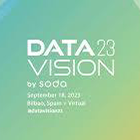
Containers are everywhere. Whether in a code test suite, a developer's laptop, in production or CI/CD pipelines, containers have taken the deployment world by storm. Similarly, Kubernetes adoption is skyrocketing.
How does Postgres fit in this container era? Is Postgres "cloud native"?
The challenges to optimally run Postgres in containers will be explored, including the challenges associated with one of most loved features: extensions.
Containers are here to stay, and they are everywhere. Postgres can and should run optimally on containers. We can catch this train of the present and future, or watch it go. It's time to act.




As of today, there are two main ways to run your database: in the cloud, consumed as a service; and self-hosted. Self-hosting was the only option before cloud; was replaced as the default option by DBaaS; and is now making a comeback. With reason.But would you self-host your database as it was done before? Surely not. Enter DBaaS-like services on Kubernetes. We will explore:
* What Kelsey Hightower thinks about the topic.
* Why you should use operators for databases on Kubernetes.
* What capabilities databases on Kubernetes provide vs what cloud does.
* How to decide where you should run your database.
* What’s the current landscape of solutions to run your database on Kubernetes.
And if time permits, we will also have a short live demo to showcase how to run databases on EKS with StackGres, an open source operator.
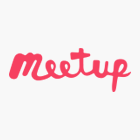
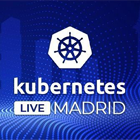
Alvaro, Michael, and Nikolay will discuss licenses in the cloud era, focusing on the Postgres ecosystem particularly and database software in general. Copyleft AGPL vs. permissive BSD/MIT/Apache vs. non-OSI-approved "custom" licenses - what is better, what is truly open source, what works better, and when?
Link copied to your clipboard!
To handle Day-2 operations for data workloads on Kubernetes, organizations rely heavily on operators, but they present a number of challenges - including lack of integration with existing tools; lack of interoperability with the rest of their stack; varying degrees of quality; and lack of standardization. And yet - a majority of people are using at least 20 operators according to the 2022 Data on Kubernetes Report. For those evaluating their options, the challenge is further complicated by choice; the number of operators continues to grow with Operator Hub currently listing 270+. Without operator standards, how can end users possibly evaluate each one to know whether it meets their needs? This panel unites the Data on Kubernetes Community Operator SIG and Kubernetes Storage SIG to discuss key features of Kubernetes database operators -- what works, what doesn't, and where the industry is going. Panelists will also present a feature matrix to help end users compare a multitude of database operators.
Link copied to your clipboard!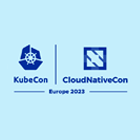
This hero panel dives into principles and guidelines to help you build successful Kubernetes workflows between platform teams and developers.
Link copied to your clipboard!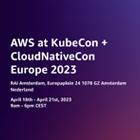
If you want to scale Postgres with Citus, on Kubernetes, this is your talk. This talk will start with the easy part:
* Analyze the current landscape of solutions that support Citus on Kubernetes.
* How to load the extension and create a Citus sharded cluster.
But then move on to the really interesting part:
* How Patroni 3.0 significantly helps with Citus integration.
* How to automate Citus sharded cluster creation to the extreme, thanks to Kubernetes’ extensible API.
* Demo it all live.
The demo and all the concepts shown will be performed on StackGres, a 100% open source project for running Postgres on Kubernetes that supports Citus.
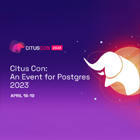
Hasta hace poco, había dos maneras de gestionar tu base de datos: "manualmente" (on-prem o en instancias en cloud) o en un proveedor de cloud que la ofrece como un servicio gestionado. Pero desde hace unos años, hay una tercera y que está creciendo mucho en popularidad: en Kubernetes.
En serio, ¿en Kubernetes? Si eres agnóstico, no te pierdas esta charla, igual empiezas a creer. Y si ya contemplabas esta opción, no te pierdas esta charla porque vamos a desgranar todas las ventajas e inconvenientes de todas las alternativas, para que sepas elegir tu mejor opción.
Coste total, automatización, características, integración, control, extensiones… analizaremos a los contendientes en todas las dimensiones. El debate está servido. No te lo pierdas.
Images
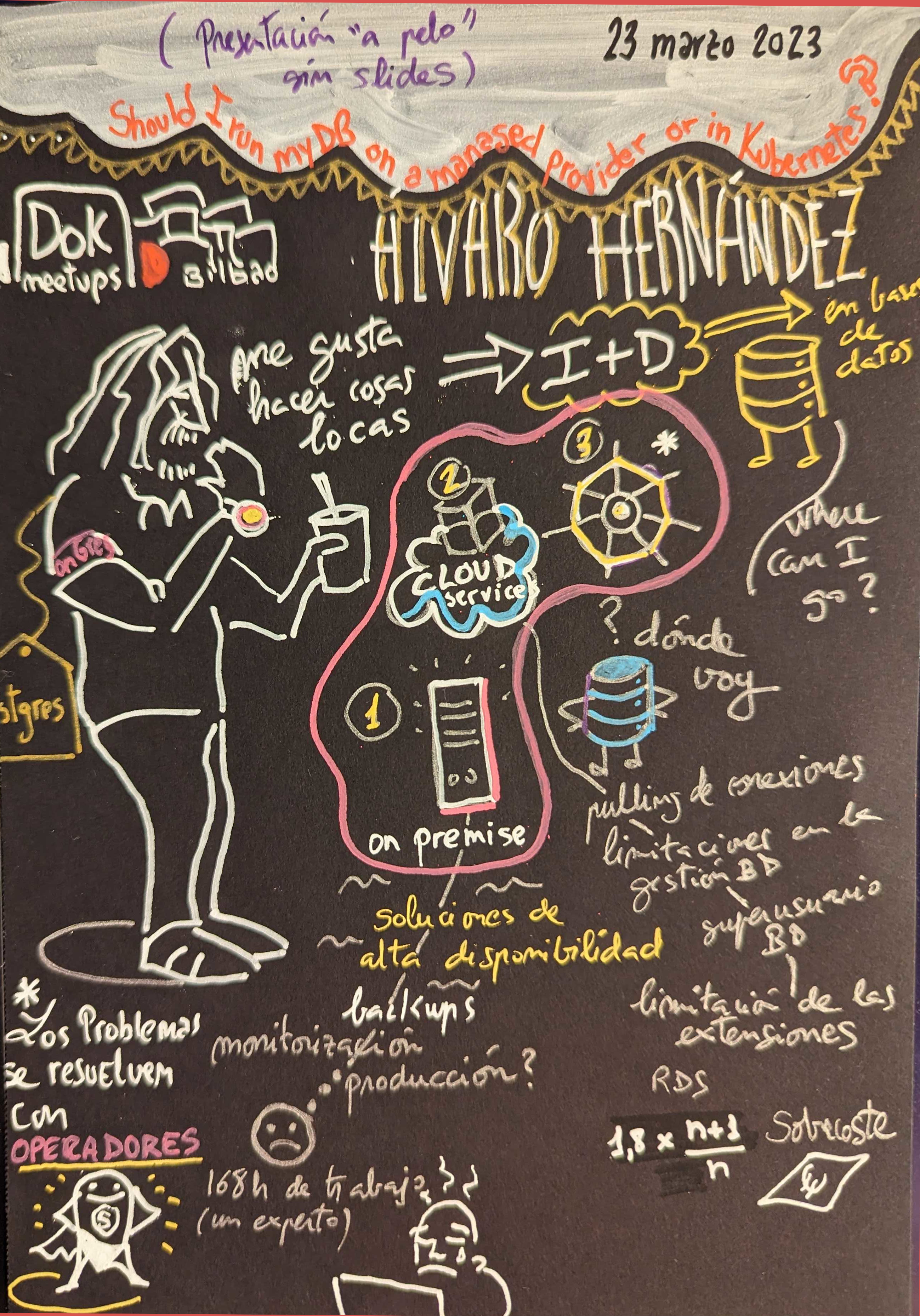
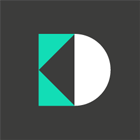
Agenda:
* Running PostGres on Bottlerocket with StackGres (Álvaro from OnGres)
* Open Forum

Interview with fellow AWS Hero Namrata H Shah (Nam).
Link copied to your clipboard!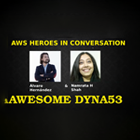
Álvaro Hernandez, Founder of OnGres, joins Corey on Screaming in the cloud to discuss his hobby project Dyna53, the balkanization of AWS services, and all things Postgres. Álvaro and Corey discuss what it means to be an AWS Community Hero these days, and Álvaro shares some of his experiences as being one of the first Heroes to provide feedback on AWS services. Álvaro also shares his thoughts on why people shouldn’t underestimate the importance of selecting the right database, why he feels Postgres and Kubernetes work so well together, and the ever-growing ecosystem of Postgres.
Podcast available here.
Cada año, Amazon Web Services (AWS) organiza re: Invent, la conferencia de computación en la nube más grande del mundo, con discursos clave, anuncios de productos y servicios, sesiones de trabajo, talleres, hackatones, preguntas y respuestas en vivo, formación y certificación, y mucho más, que cubre los temas centrales de AWS y tecnologías emergentes. Por ello te traemos lo mejor de re:Invent con un resumen de los anuncios clave para que puedas ponerte al día rápidamente. Lo dividimos en 4 sesiones diferentes: anuncios sobre IA / ML, anuncios sobre datos y análisis, anuncios sobre desarrollo de aplicaciones modernas y anuncios sobre todo lo demás.
Además, contaremos como invitado especial con Álvaro Hernandez, CEO OnGres & AWS Hero, para traer al evento la voz de la comunidad y compartir su experiencia de primera mano de su participación en re:Invent.
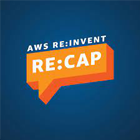
Installing Postgres may be trivial. But setting up a production environment is NOT. Postgres is not batteries included: it requires a set of side tools for production deployments: pooling, monitoring, backup tools, high availability, etc.
Join this talk to discuss this so-called “Stack Problem”, understand how Kubernetes is the platform that best solves it, and what are the main advantages (and disadvantages!) of running Postgres on K8s.
There will be a deep, live demo using the open source StackGres.io project.
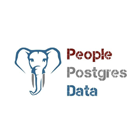
We are going to speak about CRDs, and discuss considering them as higher level entities that we normally consider them.
CRDs normally are kind of a byproduct of an operator. But in reality, they can be considered as the user-facing API of the operator surface. And as such, we would like to introduce conversations about even standardizing some of them, or creating "specifications" out of some CRDs.
Take this for example: there are some CRDs that could be, potentially, common across multiple operators. Think of a CRD to represent an S3 (or any other storage object) bucket. For operators that store data in object stores, each and every one of them are creating their own versions. But shouldn't we have some "standardized" `ObjectStorage` CRD, without a controller, that all could use?
We'll be joined by John Sanda of DataStax who works on the K8ssandra project, Alvaro Hernandez who is the CEO of Ongres and Postgres superhero, and Eyar Zilberman Co-Founder and Chief Product Officer at Datree.

Code samples and other resources from the Build on AWS Open Source episode, S01E04, can be found here. This episode featured the AWS open source newsletters #129 and #130.
Link copied to your clipboard!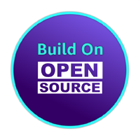
En este episodio hablamos con Alvaro Hernandez sobre como es montar una empresa técnologica siendo técnico.
Link copied to your clipboard!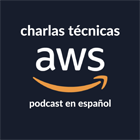
From 0 to 60/100 (depending on where you live) in just 2h! It may sound "slow" if you talk about cars, but when you talk about databases in general and Postgres in particular, it isn't! From an empty Kubernetes cluster, you will leave the session with one or more Postgres clusters created, all with: high availability and automatic failover; automated backups with lifecycle; distributed logs with lifecycle; Web Console to manage it all; connection pooling; tuned Postgres and connection pool configurations; and any number of installed Postgres extensions. All this in just a single session! BYOK (Bring Your Own Kubernetes): come prepared to the session with a Kubernetes cluster, and ready to create YAMLs and deploy via GitOps; and to do the same using the Web Console, for point-and-click lovers. And learn how to automate Postgres Day2 operations! This session is a tutorial on production quality Postgres clusters based on the open source StackGres.io platform. Go from Zero to Postgres Hero in just one Hands-on-Lab!
$50 AWS vouchers will be provided for the first 10 attendees to register and share the event on both twitter and linkedin courtesy of AWS, so you can bring an AWS EKS cluster!
You can browse the Hands-on-Lab doc here.


Oh wow. What a weird title. Full of terms that don't fit together. Or do they?
This talk is for believers, those who believe that the author will deliver what the title says. Here's the promise on what you will see:
* Time-series specialized storage and functions on SQL Server.
* SQL Server running on Kubernetes.
* Using ARM64 (aarch64) nodes.
* In reality, without using SQL Server, but rather Postgres Babelfish!
The talk will be focused on a demo to show all these components working together. Surely the demo will fail badly, so get ready your rotten tomatoes! The good news is that you will be able to reproduce the demo on your environment too, as all the software used is open source and source code will be provided.
Podcast of the talk available here.
Empecemos por el principio: ¿ejecutar bases de datos, en Kubernetes, en producción? Pues sí, Álvaro defenderá que debería ser la opción por defecto.
OK, ¿y entonces cómo hacerlo? ¿Y qué ventajas aporta? ¿Y qué tecnologías puedo usar? ¿Cómo configurarlo? En esencia: ¿cómo y por dónde se puede empezar?
La charla despejará todas las dudas y nos pondremos manos a la obra con una demo en tiempo real: en unos minutos seremos capaces de instalar el software libre StackGres y desplegar un cluster de Postgres con alta disponibilidad y failover automático, pooling de conexiones, monitorización con dashboards customizados, logs centralizados y hasta interfaz gráfico (web) de gestión.
Y si quedan dudas o comentarios, seguimos hablando tras la charla con una cerveza en la mano, ¿no?

If you don’t know how to measure query performance in Postgres, this talk is for you. If you know how to do it and consider it a simple and solved problem, this talk is definitely for you. It doesn’t sound too complicated. There are several tools and techniques to report query performance. But a deeper look reveals some troubling conclusions:
* Some techniques may outright lie to you.
* There are disagreements between different tools/techniques.
* You can only collect some limited information.
* You may not be able to measure what really matters to database users/clients.
If you want to learn more; or maybe even unlearn something, join this talk. We will explore all the caveats and provide some key understandings into how to really measure Postgres query performance.

What's the deal with Postgres in Kubernetes? To get some answers as well as more questions, we're bringing together Álvaro Hernandez from Ongres, Ryan Booz from Timescale, and Gabriele Bartolini from EDB for an "Ask Us Anything" session. Send us your questions on Slack!
Podcast of the talk available here.

Some of the topics that may or may not be discussed on this live talk could be:
- Other than Patroni and the operator, what else was needed to fully switch to Kubernetes?
- What is left, what is the future going to bring to the world of Kubernetes and Postgres operators?
Expect strong opinions, and facts. Live. Uncensored. Postgres. On. Kubernetes.
Podcast of the talk available here.

Matt Yonkovit, The HOSS at Percona, sits down with Alvaro Hernández, Founder & CEO at OnGres. Find out the story behind the history behind the elephant wall decoration in Alvaro’s office. Then listen as we go deep into the Postgres contribution ecosystem, OnGres, running databases on Kubernetes, and Babelfish.
Link copied to your clipboard!
We will discuss current state of PostgreSQL in Cloud including AWS Babelfish, running Databases on Kubernetes and his comments about the PostgreSQL Community.
Link copied to your clipboard!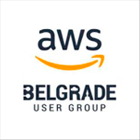
No cabe duda que los datos son la nueva moneda y que las empresas funcionan con bases de datos. Pero aunque las bases de datos son la clave para desbloquear el valor del negocio, muchas están construidas sobre complejas plataformas tradicionales que no pueden satisfacer las demandas modernas de hoy en día.
Durante este virtual bootcamp, podrá aprender mediante demos y hands-on lab y de la mano de Álvaro Hernández, fundador y CEO de Ongres, a describir la metodología y los beneficios a través de la aceleración del viaje de transformación de las bases de datos. Y de la mano de los expertos de Nutanix, profundizará en nuestras soluciones para bases de datos que ofrecen facilidad de gestión y entrega, eficiencia operativa, agilidad y escalabilidad para manejar incluso las cargas de trabajo más exigentes en una única plataforma de software preparada para la nube.
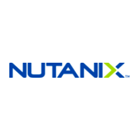
Postgres Extensions are one of the most distinctive and appreciated features of Postgres. Acting like “plugins”, they allow you to extend Postgres functionality. From adding simple data types to turning the database into a sharded cluster with a distributed query planner and executor. Yet they are hard to use in a container environment like Kubernetes. Because container images are immutable! So you either pack all possible extensions in a fat container, which leads to substantial problems; or you load dynamically under demand. Join this talk to explore the extension ecosystem in Kubernetes Postgres Operators; and how to solve this problem by introducing a system for dynamically loading extensions into the containers, and cache them within the cluster to avoid excessive downloads. A new operator pattern, the “pod-local controller” will also be introduced, as the technological solution that powers dynamic extension loading.
Link copied to your clipboard!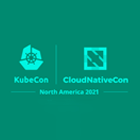
DoKC staff Sylvain and Bart interviewed OnGres CEO Álvaro, engaging in an entertaining, technical discussion about a very real use case: running Postgres on Kubernetes, at scale, in production. We covered open-source tools to use, how to properly handle day-2 operations and why you’d be missing out by not running your database on K8s!
Link copied to your clipboard!
For customers self-managing relational database infrastructure, provisioning, operating, scaling, and managing databases is tedious, time-consuming, and expensive. Amazon Relational Database Service allows you to simply launch an optimally configured, secure, and highly available database using one of three popular and familiar engines: MySQL, MariaDB, or PostgreSQL. In this tech talk, learn about the benefits of moving to an open source engine with Amazon RDS, its fully managed features, and dive deeper with a demo from one of our AWS Data Heroes.
Link copied to your clipboard!DynamoDB is one of the most praised and reputed services from Amazon Web Services. While offering a very simple model to the users, and with some notable limitations, it can scale almost endlessly. It is reported to have achieved 80M transactions per second, when servicing Amazon Retail platform on Black Friday 2020. Key to DynamoDB's scalability is a shared-nothing, scale-out and multi-tenant architecture. Postgres doesn't have a native sharding capability, but would it be needed to offer similar performance and scalability characteristics to those of DynamoDB? How could it be done? Join this talk to learn more about DynamoDB's architecture, similarities and differences with Postgres, and understand how Postgres may scale in a similar way.
Link copied to your clipboard!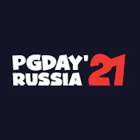
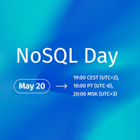
Is deploying Postgres in Kubernetes just repackaging it into a container? Can’t Postgres leverage the wide range of Cloud-Native software and integrate well with K8s? Join this journey that will cover and demonstrate, with demos running on StackGres:
How to structure Postgres into an init-less container, plus several sidecar containers for connection pooling, backups, agents, etc. Defining high level CRDs as the single API to interact with the Postgres operator. Using K8s RBAC for user authentication of a web UI management interface. Using Prometheus for monitoring; bundling a node, Postgres and PgBouncer exporters together. Proxying Postgres traffic through Envoy. Terminate Postgres SSL with an Envoy plugin, that also exports wire protocol metrics to Prometheus. Using Fluentbit to capture Postgres logs and forward them to Fluentd, which stores them on a centralized Postgres database.
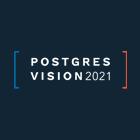


Today, running Postgres on Kubernetes is not out of the ordinary. But given all of Kubernetes capabilities, doing a 1:1 between how you run Postgres on Kubernetes and how you run it outside of it is a loss of opportunity. The Open-Source StackGres (https://stackgres.io) project has leveraged Kubernetes API to its fullest to make Postgres not run, but fly, on Kubernetes! Join this webinar with live demos to see how to: *Collect Postgres and Patroni logs from all pods into a central location, which is a separate Postgres database. Query logs with SQL, or via a Web Console. *Export Postgres network metrics to Prometheus, and offload SSL from Postgres via the Envoy proxy. *Fully automate Postgres upgrades with minimal disruption. *Fully automate Postgres “Day 2” operations, like repack, vacuum or even benchmarks! *Install Postgres extensions with 1 click, or 1 YAML line.
Link copied to your clipboard!
StackGres is an open source project to run Postgres on Kubernetes. This session will cover the most relevant features of StackGres and live demo how to run Postgres on EKS, Managed Prometheus and Grafana services, and using S3 for backups.
StackGres has innovated in many areas to adapt Postgres to Cloud Native, like distributed log servers, using Envoy to proxy Postgres traffic and terminate SSL; or the ability to dynamically load Postgres extensions into the containers.

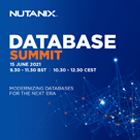
La manera en la que se despliegan y operan aplicaciones como Postgres no ha cambiado mucho en años/décadas, ni cuando se despliegan en Kubernetes. K8s es una tecnología que permite descomponer aplicaciones más monolíticas como Postgres, y delegar partes de su funcionalidad en otros componentes del ecosistema CNCF. Esta sesión incluye: *Una revisión de los operadores de Postgres. *Cómo estructurar Postgres como un contenedor sin init, pero con sidecar. *Cómo usar Envoy para hacer de proxy de todo el tráfico de Postgres, descargar el cifrado SSL y exportar métricas a Prometheus. *Usar FluentBit para capturar los logs de todos los contenedores Postgres y reenviarlos a Fluentd, para a su vez guardarlos en una base de datos Postgres centralizada. *Cómo codificar en CRDs operaciones de mantenimiento de Postgres (“Day 2 ops”). *Cómo instalar extensiones de Postgres con 1 sola línea de YAML.
Link copied to your clipboard!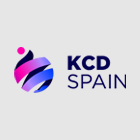
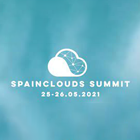
How do you monitor Postgres? What information can you get out of it, and to what degree does this information help to troubleshoot operational issues? What if you want/need to log all the queries? That may bring heavy trafficked databases down.
At OnGres we’re obsessed with improving PostgreSQL’s observability. So we worked together with Tetrate folks on an Envoy’s Network Filter extension for PostgreSQL, to provide and extend observability of the traffic inout a cluster infrastructure. This extension is public and open source. You can use it anywhere you use Envoy. It allows you to capture automated metrics and to debug network traffic. This talk will be a technical deep-dive into PostgreSQL’s protocol decoding, Envoy proxy filters and will cover all the capabilities of the tool and its usage and deployment in any environment.
Envoy is a high performance C++ distributed proxy designed for single services and applications, as well as a communication bus and “universal data plane” designed for large microservice “service mesh” architectures. Built on the learnings of solutions such as NGINX, HAProxy, hardware load balancers, and cloud load balancers, Envoy runs alongside every application and abstracts the network by providing common features in a platform-agnostic manner. When all service traffic in an infrastructure flows via an Envoy mesh, it becomes easy to visualize problem areas via consistent observability, tune overall performance, and add substrate features in a single place.
Envoy can be used to proxy connections to PostgreSQL instances and in this talk we’ll see how we improve PostgreSQL observability without impacting the performance of the database and without needing to install and/or configure a bunch of things like logs, pgstatstatements, etc, using a Network Filter for PostgreSQL we developed that decodes frontend and backend protocol to get transparently some metrics and metadata about it operation.


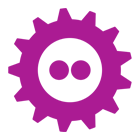
Running a Postgres installation, with or without containers, is trivial. However, setting up a production environment is a whole different matter. Postgres is not by itself a production-ready software: it requires a set of side tools to complement its functionality: connection pooling, monitoring, backup tools, high availability software, you name it. This is called the “Stack Problem”. Join this brief talk to discuss the Stack Problem, understand how Kubernetes is the platform that best solves it, and what are the main advantages (and disadvantages!) of running Postgres on Kubernetes.
Link copied to your clipboard!
Here we are again, and this time with a panel of amazing speakers talking about Kubernetes Operators from different levels of implication. We will have 10 speakers from different companies covering several points of the Kubernetes Operators life-cycle.
Link copied to your clipboard!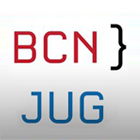
An enterprise-grade PostgreSQL requires many complementary technologies to the database core: high availability and automated failover, monitoring and alerting, centralized logging, connection pooling, etc. That is, a stack of components around PostgreSQL.Kubernetes has enabled a new model to deploy software abstracting away the infrastructure. However, containers are not lightweight VMs, and the packing of software paradigms that work on VMs are not valid on containers/Kubernetes. How should be PostgreSQL and its stack be deployed on Kubernetes? Enter StackGres. An open source software that is the result of re-engineering PostgreSQL to become cloud native. Join this talk to learn and see.
Link copied to your clipboard!

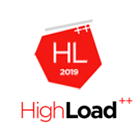
For our second virtual event we decided to try something different and invited a speaker from Spain. Álvaro is a database and software developer. He is also a founder of OnGres, which is a Postgres startup set to disrupt database market. He is a frequent speaker at Postgres, databse, cloud and Java conferences. Moreover, he is AWS Data Hero.
Join online via Zoom here. Hashtag for this event: #SGVirtual.
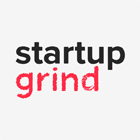
PostgreSQL y Cloud Native… PostgreSQL y Kubernetes… muchos términos trendy, pero ¿se llevan bien? A pesar de los mitos sobre la no idoneidad de los contenedores para cargas con estado, como las bases de datos, la respuesta es sí. Si quieres entender el porqué y el cómo, y sobre todo cómo poder disponer de una experiencia similar a RDS, pero en tu propio cluster Kubernetes, esta es tu charla. Por primera vez, PostgreSQL España y AWS Madrid se suman en la organización de este evento conjunto. Álvaro Hernández, experto en PostgreSQL y en AWS, y Fundador de PostgreSQL España, será el encargado de presentar una charla técnica, profunda y práctica (con EKS) sobre PostgreSQL y Kubernetes.
Link copied to your clipboard!

The core topic: running Postgres in containers, in Kubernetes, and in clouds in general.
Link copied to your clipboard!
Kubernetes is the new way of deploying software, programmatically, on almost any infrastructure (be it cloud or on-prem). But is a complex beast. How to get started? How to dive deeper? What are the specific best-practices and special hints for Postgres DBAs dealing with Kubernetes? Join this half-day tutorial to learn, practically, among other topics: How to quickly get started with Kubernetes, Manage storage, Manage services, networking and ingress/egress, How to make Postgres cloud-native in Kubernetes, Do a show-run of existing Postgres operators, including Zalando, CrunchyData and StackGres.
This tutorial is very practical. BYOL! (Bring Your Own Laptop). With Kubernetes installed! (check microk8s, minikube or k3s if you don’t have any installed.
You can find the source code of this demo here.

PostgreSQL is one of the world’s most advanced open-source databases. With around 270 configuration parameters, it is definitely tunable, and must indeed be tuned. Amazon RDS for PostgreSQL exposes around 200 of these parameters for user tuning. Amazon RDS brings you high availability, backups, provisioning, and monitoring, along with some sensible defaults for configuration tuning. But not auto-tuning—no AI here yet! Join this session to learn how to tune PostgreSQL like a pro and make the best usage of your Amazon RDS and PostgreSQL servers.
Link copied to your clipboard!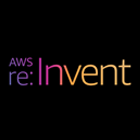
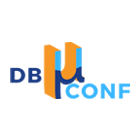
Benchmarking is hard. Benchmarking databases, harder. Benchmarking databases that follow different approaches (relational vs document) is even harder. But the market demands these kinds of benchmarks. Despite the different data models that MongoDB and PostgreSQL expose, many organizations face the challenge of picking either technology. And performance is arguably the main deciding factor. Join this talk to discover the numbers! After $30K spent on public cloud and months of testing, there are many different scenarios to analyze. Benchmarks on three distinct categories have been performed: OLTP, OLAP and comparing MongoDB 4.0 transaction performance with PostgreSQL's.
Link copied to your clipboard!
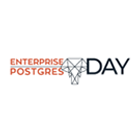
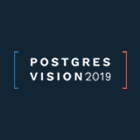
Stop paying for Larry’s boat! PostgreSQL is a fully-featured, enterprise-grade and open source database, named two years in a row database of the year! And it’s also the best candidate to migrate off of Oracle, supporting very advanced SQL, easy administration and pl/pgsql, a replacement for Oracle’s PL/SQL. Stop spending hundreds of thousands or millions of $ on database licenses and reinvest them in your team, infrastructure and software. Join this half-day tutorial to learn the best practices, tricks and tools to perform a successful Oracle to PostgreSQL migration. Learn from the team that performed 150M users Blackberry migration to PostgreSQL on GCP with near-zero downtime, and the key author behind orafce, a set of Oracle compatible functions on top of PostgreSQL.
Link copied to your clipboard!


Kubernetes has enabled a new model to deploy applications abstracting away the infrastructure, enabling multi-cloud and on-premise seamless deployments. However, containers are not lightweight virtual machines, and the packing of software paradigms that work on VMs are not valid on containers/Kubernetes. This talk will cover, among other topics: how to generate PostgreSQL minimal containers; how to package and interact with sidecar containers; integration and extension of Kubernetes. Join this journey describing how to prepare PostgreSQL to run natively on Kubernetes, and how to build a full PostgreSQL stack (PostgreSQL plus all the components it requires for a full-featured system with monitoring, high availability, etc) in Kubernetes.
Link copied to your clipboard!
PostgreSQL is the database of the year 2017 and 2018, and the database with the highest popularity growth in the last years. It is very highly ranked, reputed, trusted. But what backs this reputation? Is it worth the praises? If you consider the database a “commodity” where 99% of what you do is INSERT, SELECT, GROUP BY, JOIN, keep reading. PostgreSQL is an incredible database with so many cool features that will make your job easier. Less buggy. More robust. Cheaper. And last but not least, more fun. This is a tour of 10 really cool PostgreSQL features, like rolling back your live DDL changes, incredibly powerful JSON, functionality extension mechanism (like plugins) or how to connect to almost any external datasource.
Link copied to your clipboard!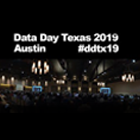
Configuración de PostgreSQL para Seres Humanos es una introducción rápida, pero profunda, a cómo tunear PostgreSQL. ¿Cuántos parámetros editas normalmente de postgresql.conf? Hay más de 250... ¿Sabes cómo exprimir al máximo el rendimiento de tu base de datos? Si tunear PostgreSQL te parece un mundo, y eres un SER HUMANO, no debes perderte este meetup ;)
Link copied to your clipboard!

¿Han pasado ya los “hombres de negro” por la empresa para dejar una “receta”? ¿Quieres saber cómo transformar cientos de miles o millones de euros en licencias de la base de datos más cara en 0€? Migrar de ELCARO a PostgreSQL no es fácil. Pero los potenciales beneficios son ingentes. No te pierdas esta charla si quieres saber: Cuándo se puede y cuándo no se puede (debe) migrar. Qué hacer con esos PL/SQL. Cómo se migra DDL, cómo optimizarlo y fallos habituales. ¿Migración offline, o en tiempo real? Tuning, rendimiento. ¿Y la nube, cómo migrar a AWS, GCP…?
Link copied to your clipboard!
BBM (the Black Berry Messenger) is one of the largest chat and voice/video applications in the world, with more than 150M users. And it was running on on-premise Oracle. We helped them migrate to PostgreSQL running on GCP with real-time replication and near-zero downtime.
Link copied to your clipboard!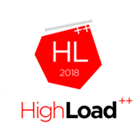
It’s 3am. Your phone rings. PostgreSQL is down, you need to promote a replica to master. Why the h**l isn’t this automatic? If you thought of this before, you want automatic High Availability (HA). Don’t miss this talk! We will enter the world of Modern PostgreSQL HA. Good news, there are several new, “modern” solutions for PostgreSQL HA. However, there are several solutions and it's not easy to pick one. Most require non-trivial setups, and there are many small caveats about HA like how to provide entry points to the application, HA correctness, HA vs. read scaling, external dependencies, interaction with cloud environments, and so forth. Master PostgreSQL HA and how to deploy it on current times.
Link copied to your clipboard!


It’s 3am. Your phone rings. PostgreSQL is down, you need to promote a replica to master. Why the h**l isn’t this automatic? If you thought of this before, you want automatic High Availability (HA). Don’t miss this tutorial! We will enter the world of Modern PostgreSQL HA. Good news, there are several new, “modern” solutions for PostgreSQL HA. However, there are several solutions and it's not easy to pick one. Most require non-trivial setups, and there are many small caveats about HA like how to provide entry points to the application, HA correctness, HA vs. read scaling, external dependencies, interaction with cloud environments, and so forth.
Link copied to your clipboard!
PostgreSQL High Availability (HA) is a very desirable goal for most, if not a strict requirement. And there are technologies and literature to help provide HA on a PostgreSQL cluster. However at Groupon we manage hundreds of database servers, distributed across several datacenters in the world. And our internal policy mandates that we need a Disaster Recovery mechanism to switch a complete datacenter over to another. With this main requirement we have built Hydra, a soon-to-be-open-sourced solution that implements geo-redundant failover. It relies on Consul for distributed consistency and as the basis for the multi-datacenter approach, and is implemented as a lightweight agent in Java8.
Link copied to your clipboard!
PostgreSQL is the world’s most advanced open source database. Indeed! With around 270 configuration parameters in postgresql.conf, plus all the knobs in pg_hba.conf, it is definitely ADVANCED! How many parameters do you tune? 1? 8? 32? Anyone ever tuned more than 64? No tuning means below par performance. But how to start? Which parameters to tune? What are the appropriate values? Is there a tool --not just an editor like vim or emacs-- to help users manage the 700-line postgresql.conf file? Join this talk to understand the performance advantages of appropriately tuning your postgresql.conf file, showcase a new free tool to make PostgreSQL configuration possible for HUMANS, and learn the best practices for tuning several relevant postgresql.conf parameters. No tuning means below par performance. But how to start? Which parameters to tune? What are the appropriate values? Is there a tool --not just an editor like vim or emacs-- to help users manage the 700-line postgresql.conf file? Join this talk to understand the performance advantages of appropriately tuning your postgresql.conf file, showcase a new free tool to make PostgreSQL configuration possible for HUMANS, and learn the best practices for tuning several relevant postgresql.conf parameters.
Link copied to your clipboard!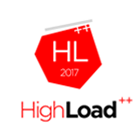


ToroDB Stampede is an open source middleware that speaks the MongoDB protocol and replicates data live from MongoDB to an RDBMS. Data is transformed on-the-fly from a document model into a pure relational model, not a single flattened table. Schema is created automatically, there’s no need to design any tables beforehand. ToroDB is built 100% with Java8, and this talk is about its internals, how some significant problems are solved and what techniques and frameworks are used and why.
Link copied to your clipboard!
MongoDB is a successful database in the NoSQL space, mostly used for OLTP-type workloads. However, due to the lack of ACID (transactions in particular) and significant performance issues with OLAP/DW workloads, more and more MongoDB users are considering migrating off of MongoDB to a RDBMS, where PostgreSQL is the usual choice. This represents a significant opportunity for the PostgreSQL ecosystem, to "bring NoSQL to SQL". This talk presents the challenges that MongoDB users are facing and the state of the art of the available tools and open source solutions available to perform ETL and live migrations to PostgreSQL. In particular, ToroDB Stampede (https://www.torodb.com/stampede) will be discussed, an open source solution that replicates live from MongoDB, transform JSON documents into relational tables, and stores the data in PostgreSQL.
Link copied to your clipboard!



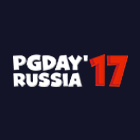
There are many valid reasons to want your MongoDB data to interact with the relational/SQL ecosystem: the humongous amount of tools available; the ability to use the SQL query language; or the need for really fast aggregate queries. However, this process is not easy: it requires designing the schema, which is ever changing; and a batch ETL process, which might require external tools. Enter ToroDB Stampede: a secondary node for your replica set, that automatically replicates the data and transforms it in real-time to a set of relational tables on a RDBMS, which you can query with native SQL. But 100x faster. Want so see the benchmarks? ToroDB Stampede is the open-source solution to MongoDB's BI Connector and is compatible with both MongoDB and Percona Server for MongoDB.
Link copied to your clipboard!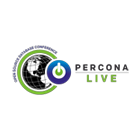
Java is one of the most used languages when programming with PostgreSQL databases. Join this tutorial to learn or review the techniques to connect to postgres, best programming practices with JDBC, and to explore jOOQ, a mapper software that allows you to use the full power of SQL and postgres advanced query features while avoiding all the boilerplate code. This tutorial is very practical: most of the time will be dedicated to iterate through code samples. It covers: Introduction to Java and PostgreSQL , Ways of connecting to PostgreSQL from Java (not only JDBC!), Introduction to JDBC. JDBC types. PostgreSQL JDBC; Code demo: JDBC with PostgreSQL. From Java 1.4 to Java 8, best practices and code samples; Code demo: jOOQ, a great mapper for PostgreSQL; Java inside PostgreSQL, The future of Java and PostgreSQL.
Link copied to your clipboard!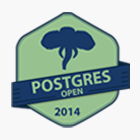
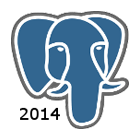


Hace unos años se le dio por muerto. Hoy, sin embargo, está más vivo que nunca: SQL, el lenguaje de datos que nunca se fue. Hoy, si no lo dominas, estás acabado.
Link copied to your clipboard!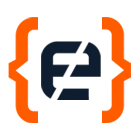
What if you could seamlessly replicate all your MongoDB data to a native SQL database? With NoSQL you can scale out, you don’t need to pre-define your schema, and it maps naturally to the OO world. But how do you perform data discovery? How do you interact with the vast SQL ecosystem, specially the BI tools? How do your SQL-savvy users do without SQL? The answer to most of these questions is usually not a very convincing one. But there are good news: you can bring all your MongoDB data to the SQL world. With ToroDB, an open-source database that participates in a MongoDB cluster. ToroDB acts as a hidden secondary node and replicates in real-time your MongoDB data to a native, SQL database such as PostgreSQL. The process does not involve defining any schema or creating any definition files: ToroDB creates everything needed to represent your MongoDB data as relational tables. Now you can leverage all the SQL ecosystem with your MongoDB data, be it for data migration, connecting to BI connectors, using native SQL tools or simply querying with the powerful SQL language.And using native SQL sharded databases like Greenplum and columnar storage, your aggregate queries, compared to MongoDB’s sharding and aggregation, run up to 100x faster!
Link copied to your clipboard!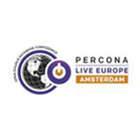
Java is “the” Enterprise language, and probably the most used language to interact with a Postgres database. However, is Java with Postgres up to the task? This talk is a technical report on the state of the art of PostgreSQL and Java that will answer two basic questions: * Is Java able to exploit 100% of the performance that PostgreSQL delivers? If not, where is the overhead? What can be done about it? Are there any technical or architectural patterns in PostgreSQL that may limit Java's performance? * Can we access from Java all the available functionality exposed by PostgreSQL? If not, what is missing and how it can be fixed? This talk will explore current limitations/issues in using PostgreSQL from Java, but will also try to provide solutions and/or paths to fix and improve the current situation. Special focus will be provided on achieving high performance and current best practices.
Link copied to your clipboard!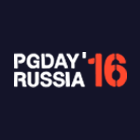
Java is the most used programming language in the world. Yet how is it supported in PostgreSQL? What are the gotchas and the best practices? Now that Java is evolving significantly, how will PostgreSQL follow? Despite Java's age, language is stronger than ever. It's the de facto programming language in the enterprise world. And since Java 8, it is having a come back in the startup and open source world. PostgreSQL is accessed more from Java than any other interface but, how's Java supported in PostgreSQL? This talk will analyze how it has been in the past, but more importantly how can you use it and what can you do today. JDBC drivers, best practices, pl/java and other less frequently used tools will be presented and discussed.And then we will look into the future, to see what is currently under development. Like Phoebe, a new Java Reactive Driver for PostgreSQL that targets clusters, pipelined queries and non-JDBC interface for fully asynchronous operation. And also what needs to be done in areas like server-side Java, to bring Java to a fully advanced first-level language within PostgreSQL.
Link copied to your clipboard!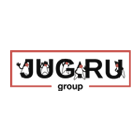


ToroDB is an exciting, new 100% open-source Java database system based on PostgreSQL that is 100% compatible with the MongoDB protocol (API and tools) and provides orders of magnitude higher analytics performance (up to 100x). It has a novel architecture that allows it to work with PostgreSQL, DB2, Oracle, Greenplum another back-ends. You can replicate data from a (noSQL) MongoDB cluster and perform analytics using SQL. Join this talk to understand how ToroDB works, what advantages it may bring to your Big Data architecture, and how to hack ToroDB's Java open source code.
Link copied to your clipboard!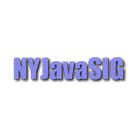
¡Un laboratorio con todas las novedades de PostgreSQL 9.5! Venga, seamos realistas: has oído hablar de UPSERT (http://www.postgresql.org/docs/9.5/static/sql-insert.html), te suenan los índices BRIN (http://www.postgresql.org/docs/9.5/static/brin-intro.html), pero... ¿lo has practicado? ¿Has medido la mejora de rendimiento? Puede. Pero ¿y CUBE y ROLLUP (http://www.postgresql.org/docs/current/static/queries-table-expressions.html)? Y a nivel de administración, ¿has jugado con pg_rewind? Y aún hay mucho más, MUCHO más...
Link copied to your clipboard!
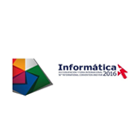

So you have heard already --or maybe not-- about all the new goodies that come with PostgreSQL 9.5. But have you put them to test? In production? Are you really taking advantage of all these new great features? Join this hand-on lab to learn, by experience, what new features PostgreSQL 9.5 comes with, what to use them for, and how to use them. The format of the tutorial is a brief lecture-style introduction to the new features, followed by an extensive lab. The lab consists on a series of exercises, explained in a Lab guide, to be solved during the session, while the instructor will be available for questions and showcasing the solutions to the proposed exercises.
Link copied to your clipboard!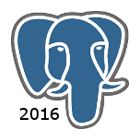
Are you a DBA/devops tired of being asked to also support MongoDB? Wouldn't it be cool if your current RDBMS could support MongoDB... without having a MongoDB server? Would you like to enable your RDBMS to accept true unstructured data with MongoDB's famous API, while still offering ACID-like capabilities? ToroDB is an open source project that turns your RDBMS into a MongoDB-compatible server, supporting the MongoDB query API and MongoDB's replication, but storing your data into a reliable and trusted PostgreSQL database. Or analytics databases such as Greenplum or CitusDB, to also support OLTP and OLAP/DW workloads! ToroDB natively implements the MongoDB protocol, so you can use it with MongoDB tools and drivers, and features a document-to-relational mapping algorithm that transforms the JSON documents into relational tables. ToroDB also offers transactions, a native SQL API and automatic data normalization and partitioning based on JSON document's implicit schema. If you want to have a RDBMS and MongoDB on the same system, you can't miss this talk!
Link copied to your clipboard!
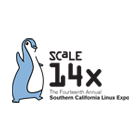
How do you cope with the rise of unstructured data? Do you have different systems for your NoSQL and your SQL databases? How do you perform analytics of NoSQL data? ToroDB is an open-source NoSQL & relational database written in Java. ToroDB transforms NoSQL documents to relational structures and stores them in relational databases like PostgreSQL. ToroDB speaks the MongoDB protocol, being compatible with MongoDB programs and tools. With ToroDB, you can use either SQL or the MongoDB API for queries. ToroDB automatically structures and partitions your NoSQL data. ToroDB also speaks the MongoDB protocol and can replicate live from it. And you can do analytics in pure SQL against Massively Parallel Databases like Greenplum or CitusDB. Join this talk to understand how ToroDB works, what advantages it may bring to your Big Data architecture, and how to hack ToroDB’s Java open source code.
Link copied to your clipboard!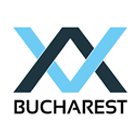
ToroDB is compatible with MongoDB protocol and APIs, but with support for native SQL, atomic operations and reliable and durable backends like PostgreSQL.
Link copied to your clipboard!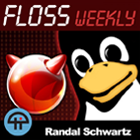
Logical decoding is one of the most prominent features of PostgreSQL 9.4 but, probably, not the most praised or known. It is the basis for in-core logical replication and many other replication solutions that will be coming to future PostgreSQL versions. But logical decoding is much more than that, it opens the doors to a whole new slew of applications that are not related, or do not require, replication. Following PostgreSQL's extensibility tradition, logical decoding is pluggable (you can plug in code to determine what the output format is) and, most importantly, it is externally controllable. With this toolset, database DMLs can be streamed to third-party applicationss, enabling middleware solutions for data replication, filtering, modification, routing or interchange with different systems. A new world of data interchange and integration. This talk explained how logical decoding works, what features does it have, and how to use it from external applications, diving deep into the techniques and the code. Real world examples would be provided and a discussion about new PostgreSQL-based middleware solutions would be started.
Link copied to your clipboard!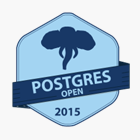


ToroDB. New NoSQL database. Open source. Not reinventing the wheel, runs on top of PostgreSQL. MongoDB-compatible. With transactions. Does not suffer dirty-reads. With replication & sharding. This talk will show to the audience that SQL databases are not dead --definitely not. They shine. Even competing face to face with NoSQL. Now it's possible to build a NoSQL database on top of a SQL database. And probably, a better one. Discover how PostgreSQL can become a NoSQL database: how to map NoSQL documents to relational (no jsonb needed!); how to emulate MongoDB replication with PostgreSQL's awesome logical decoding; how to map MongoDB queries to SQL; how to benchmark and compare ToroDB & MongoDB. And how to turn a MongoDB-compatible database into a big data and analytics animal, in pure SQL.
Link copied to your clipboard!
NoSQL databases have emerged as a response to some perceived problems in the RDBMSs: agile/dynamic schemas; and transparent, horizontal scaling of the database. The former has been promptly targeted with the introduction of unstructured data types, but scaling a relational databases is still a very hard problem. As a consequence, all NoSQL databases have been built from scratch: their storage engines, replication techniques, journaling, ACID support (if any). They haven't leveraged the previously existing state-of-the-art of RDBMSs, effectively re-inventing the wheel. Isn't this sub-optimal? Wouldn't it be possible to construct a NoSQL database by layering it on top of a relational database? Enter ToroDB. ToroDB is an open source project that behaves as a NoSQL database but runs on top of PostgreSQL, one of the most respected and reliable relational databases. ToroDB offers a document (JSON-like) interface, and implements the MongoDB wire protocol, hence being compatible with existing MongoDB drivers and applications. Rather than using PostgreSQL's jsonb data type, ToroDB explored an innovative approach by transforming JSON documents to a fully relational representation, in an automated way. This brings to the table many advantages like lower disk footprint and automatic data-partitioning, leading to significantly faster queries. As ToroDB speaks the MongoDB protocol, it also implements MongoDB replication and sharding techniques, enabling it to scale and offer HA like Mongo. Being based on PostgreSQL, ToroDB is effectively scaling PostgreSQL much in the same way MongoDB scales. This presentation describes the architecture, internals and pitfalls of implementing MongoDB replication on ToroDB, and how key PostgreSQL technologies have been leveraged to accomplish this task (such as the use of Logical Decoding to serve idempotent database changes). It also addresses the MongoDB protocol itself, CAP, Jepsen and comments about real performance. It also touches MongoWP, a component of ToroDB built as a separate open source library, that implements the MongoDB protocol and enables development of Mongo-server-like, third-party applications.
Link copied to your clipboard!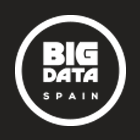
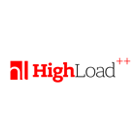
ToroDB (https://github.com/torodb/torodb) is based on PostgreSQL (JSON documents are stored relationally, not as a blob/jsonb) and speaks the MongoDB wire protocol — so it looks like you're interacting with MongoDB, but it's actually PostgreSQL.
Link copied to your clipboard!
In the last 5-10 years, the industry have witnessed how dozens of new NoSQL databases emerge, bringing topics such as schema-less and scaling to buzzwords, hot topics. These NoSQL databases have taken a different approach to solving current scaling and Big Data problems, sometimes offering niche products, sometimes innovating on a given aspect, sometimes taking compromises to their CAP-compliance. However, and surprisingly to some, NoSQL databases share at least one common pattern: they were all built from scratch. Their storage engines, replication techniques, journaling, ACID support (if any), they were all coded from zero. However, these are among the most complex problems in the software industry, yet they were implemented without leveraging the previously existing state of the art. From an engineering perspective, this is not what we all have been told: DRY. Wouldn't it be possible to construct a NoSQL database by layering it on top of a relational database? Wouldn't it be possible to "tune" a relational database to behave as a NoSQL database, so as to easily focus on being schema-less, scalable and anything else needed, but without re-inventing the wheel on "basic" stuff such as journaling or durability? Enter Toro DB. Toro DB is an open source project that behaves as a NoSQL database but runs on top of PostgreSQL, one of the most respected and reliable relational databases. ToroDB offers a document interface, and implements the MongoDB wire protocol, hence being compatible with existing MongoDB drivers and applications. But ToroDB stores data on PostgreSQL - something which is transparent to database clients. But rather than storing JSON documents as a blob or using PostgreSQL 9.4's fantastic jsonb data type. ToroDB explored an innovative approach by transforming document data to a relational representation in a fully automated way - that does not require user intervention or configuration. the benefits of storing document data as relational are quite significant.
Link copied to your clipboard!
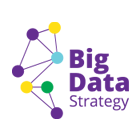
ToroDB es una base de datos NoSQL que utiliza PostgreSQL como motor de almacenamiento. Es compatible con MongoDB, gracias a que implementa el protocolo de forma nativa. Es open source (https://github.com/torodb/torodb) y es la primera base de datos realizada en España. Además, está programada en Java, y en esta charla se presentan algunos elementos de arquitectura, y técnicos, sobre el desarrollo de la misma.
Link copied to your clipboard!PostgreSQL has kept up the momentum around JSON with version 9.4 featuring JSONB as demand for working with unstructured data continues to grow. PostgreSQL 9.4 introduces the new JSONB "binary JSON" type. This new storage format for unstructured document data is higher-performance than the original JSON type, and comes with indexing, functions and operators for manipulating and integrating JSON data easily with record oriented data in Postgres. This class will include instruction for several scenarios for working with JSON in PostgreSQL and demonstrate performance metrics. This class will also provide instruction on how to use different operations.
Link copied to your clipboard!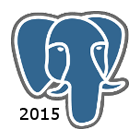
Esta presentación contiene ideas de proyectos para desarrollar para mejorar el proyecto ToroDB (https://github.com/torodb/torodb). Se utilizará el lenguaje Java (dado que es el lenguaje en el que está escrito ToroDB) pero algunas de las pruebas propuestas, al ser desde la perspectiva del cliente, podrían escribirse en otros lenguajes.
Link copied to your clipboard!
¿Te imaginas una base de datos como MongoDB pero con la fiabilidad y robustez dePostgreSQL? ¿Harto de que en tu empresa o clientes teman usar NoSQL y digan "sólo relacional"? ¿Te imaginas si se pudiera construir una base de datos NoSQL sobre la base de una excelente base de datos relacional? ¿Te imaginas un MongoDB durable, con lecturas consistentes, con transacciones.....?
Link copied to your clipboard!
ToroDB is a document oriented, Mongo-compatible, open-source database built on top of PostgreSQL. Why all NoSQL databases are doing everything from scratch? Concurrency, durability, journaling... all those are quite tough goals to achieve. Aren't RDBMs good enough? We think they are, specially PostgreSQL. So we built ToroDB, a new “NoSQL” database, that speaks JSON, and uses PostgreSQL as the “storage layer”. ToroDB doesn't use PostgreSQL's fantastic jsonb type; it instead offers a novel approach storing data relationally. JSON documents are split into parts, each of which is stored in a relation (table). This has several advantages, which will be outlined during the course of the talk. ToroDB implements the MongoDB protocol, and is thus compatible with MongoDB applications. This means it supports the advanced MongoDB query language, and MongoDB language updates. And it's all open source and running on top of PostgreSQL :)
Link copied to your clipboard!



ToroDB is a document oriented, Mongo-compatible, open-source database built on top of PostgreSQL. Why all NoSQL databases are doing everything from scratch? Concurrency, durability, journaling... all those are quite tough goals to achieve. Aren't RDBMs good enough? We think they are, specially PostgreSQL. So we built ToroDB, a new “NoSQL” database, that speaks JSON, and uses PostgreSQL as the “storage layer”. ToroDB doesn't use PostgreSQL's fantastic jsonb type; it instead offers a novel approach storing data relationally. JSON documents are split into parts, each of which is stored in a relation (table). This has several advantages, which will be outlined during the course of the talk. ToroDB implements the MongoDB protocol, and is thus compatible with MongoDB applications. This means it supports the advanced MongoDB query language, and MongoDB language updates. And it's all open source and running on top of PostgreSQL :)
Link copied to your clipboard!

In the recent years, NoSQL databases have been gaining a lot of traction. Most of them haven been designed and written from scratch. Building on the principles of schema-less and high scalability, they offer a distinct approach to that of relational databases. But rather than re-using what the industry has learned in the last 3 decades of database development, most of these databases are re-inventing the wheel and designing the data storage layers -one of the toughest part when building a database- from scratch. Our work aims to present a database system that instead uses relational databases as well-known, durable, scalable and fast -despite what many would say- storage layers as a foundation to build a schema-less, document-oriented, scalable database. This project is named ToroDB, and its will be recently published as open-source software by BDS'14. It will effectively be the very first general-purpose database ever built in Spain.
Link copied to your clipboard!In the recent years, NoSQL databases have been gaining a lot of traction. Most of them haven been designed and written from scratch. Building on the principles of schema-less and high scalability, they offer a distinct approach to that of relational databases. But rather than re-using what the industry has learned in the last 3 decades of database development, most of these databases are re-inventing the wheel and designing the data storage layers -one of the toughest part when building a database- from scratch. Our work aims to present a database system that instead uses relational databases as well-known, durable, scalable and fast -despite what many would say- storage layers as a foundation to build a schema-less, document-oriented, scalable database. This project is named ToroDB, and its will be recently published as open-source software by BDS'14. It will effectively be the very first general-purpose database ever built in Spain.
Link copied to your clipboard!
Interview with Alvaro Hernandez, JCrete attendee, about SQL vs. No-SQL, ORM, and database performance. (With plenty of heckling from Kirk Pepperdine)
Link copied to your clipboard!
SQL vs. NoSQL Session at JCrete lead by Alvaro Hernandez.
Link copied to your clipboard!
BDR, o "Bi-Directional Replication" (http://2ndquadrant.com/en/resources/bdr/) es el mecanismo de replicación lógica que se va a incorporar en PostgreSQL para permitir replicación maestro-maestro, lógica, de hasta 48 nodos. Ha sido desarrollado por 2nd Quadrant y ya está lanzado hace unos días como software libre (no calidad producción).
Link copied to your clipboard!
PostgreSQL y Big Data, Big Data y PostgreSQL. PostgreSQL y almacenamiento por columnas (columnar store). Las bases de datos relacionales orientan su procesado, por lo general, a registros, con todas las columnas que contienen. Sin embargo, para procesado de grandes volúmenes de información hay otras técnicas de almacenamiento, como las orientadas a columnas, que permiten una eficiencia muy superior para determinadas operaciones y habilitan compresión transparente para reducir los requisitos de almacenamiento.
Link copied to your clipboard!
Usually “large” databases are considered as such for the high number of records they hold, reaching billions or even more than that. But what about creating a billion... tables? Sometime ago, this apparently crazy question was found in a database soup (http://it.toolbox.com/blogs/database-soup/one-billion-tables-or-bust-46270). It may not be your day-to-day task, but the task of creating them exposes some topics about PostgreSQL internals, performance and large databases that may be really worth for your day-to-day. Join us for this talk, where we'll be discussing topics such as catalogue structure and storage requirements, table speed creation, differences between PostgreSQL versions and durability vs. table creation speed tradeoffs, among others. And, of course, how long a “dt” takes on a 1B tables database :) This talk will explore all the steps taken to achieve such a result, raising questions on topics such as: The catalogue structure and its storage requirements, Table creation speed, Durability tradeoffs to achieve the desired goal, Strategy to be able to create the 1B tables. Scripts / programs used, How the database behaves under such a high table count, Differences in table creation speed and other shortcuts between different PostgreSQL versions, How the storage media and database memory affects the table creation speed and the feasibility of the task, If it makes sense to have such a database. It is intended to be a funny, open talk, for a beginner to medium level audience, interested in large databases, performance and PostgreSQL internals.
Link copied to your clipboard!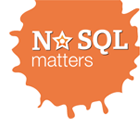
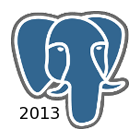
Se describen todos los mecanismos de alta disponibilidad (high availability) y replicación de que dispone PostgreSQL, tanto en el core (WAL shipping, streaming replication) como herramientas externas (pgpool, Slony, bucardo, londiste).
Link copied to your clipboard!Todas las razones por las que PostgreSQL me pone... Todas las características que tienen PostgreSQL que lo hacen una base de datos excepcional. Se hablará de rendimiento, durabilidad, tipos de datos, funciones, extensiones, NoSQL, replicación, alta disponibilidad, licencia, calidad del código.... todo lo que rodea a esta base de datos software libre.
Link copied to your clipboard!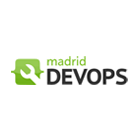
Los mejores trucos, las mejores funcionalidades, ¡todo lo que te perdiste si no pudiste venir!
Link copied to your clipboard!

¿Qué es una base de datos "grande"? ¿Cuántas tablas puede contener una base de datos PostgreSQL? ¿Hay un límite? ¿Es posible crear 10^9, un billón, de tablas en una base de datos? Charla impartida en PgDay Ecuador 2013, donde se habló de bases de datos grandes, alto rendimiento, 150.000 inserciones por segundo en un único nodo y, por supuesto... si en NOSYS llegamos a crear 1.000.000.000 tablas en una base de datos y cuántos $$$$ nos costó ejecutar el experimento en Amazon AWS.
Link copied to your clipboard!ORMs (Object-to-Relational Mapping) are a must for programmers, while they are usually a nightmare for DBAs. At the same time, they are large and complex, and underpowered -compared to the database itself-. It's time to rethink ORMs, and let programmers receive input from the database community in a new strategy of collaboration where a new interface (say "API") between both is designed. Recently, ORMs (Object-to-Relational Mapping) are becoming controversial. Most programmers can't simply live without them, and argue that handwritten SQL is cumbersome and error-prone. On the other hand, DBAs cry about the terrible performance and inefficiencies they may induce in the database. Even some programmers state that ORMs are not able to fully exploit the power of the database. Worse, most ORMs are becoming increasingly large and complex, yet they fail to deliver (at least at the ORM abstraction level) what may be considered as basic to intermediate db capabilities, such as triggers, roles or table constraints. This failure of ORMs is also eroding databases' prestige, what in turn feeds a growing community that is advocating for eliminating SQL altogether. So, who's right? What is the future of ORMs? How should them evolve, if not disappear? We don't need to rethink the SQL-relational model --it simply works. What we need to rethink is the DBA-programmers interface (as if it were an API) so that ORMs may fully work. Time is running fast. We have to react. This talk may be best viewed as a call for collaboration between DBAs and programmers. It's a starting point to re-think ORMs and help save the SQL-relational world! (And the PostgreSQL community should have a lot to say about this, so let's do it!)
Link copied to your clipboard!
This report was produced by OnGres and compares the performance of PostgreSQL and MongoDB. It features in depth analysis along with the supporting data and source code for three different benchmarks: Transaction (a custom benchmark that models an airline reservation system), Sysbench (for OLTP workloads, considers both in-memory and 2TB datasets), and JSON-based OLAP (measures performance on four custom-written queries).
This project aims to provide a complete clean-room implementation of SCRAM. It is written in Java and provided in a modular, re-usable way, independent of other software or programs.
Got a US patent for ToroDB’s main algorithm. ToroDB is compatible with MongoDB protocol and APIs, but with support for native SQL, atomic operations and reliable and durable backends like PostgreSQL.
Description: Fundación PostgreSQL is a non-profit PostgreSQL foundation. Donated personally 30,000 EUR to the Foundation, in what is the largest known personal donation to a PostgreSQL community. The Foundation is currently organizing PostgreSQL Ibiza conference and will lead and fund the translation of the official PostgreSQL documentation to Spanish.
Top 10 largest PUGs in the world, with more than 900 members. Next event here.
We’re announcing StackGres 1.0.0 GA. StackGres is an Open Source Postgres-as-a-Service that runs on any Kubernetes environment. StackGres, today, is the Postgres platform with the most Postgres extensions available: 120 as of today. Many more to come in the future.
“Is Kubernetes ready for stateful workloads?” is the first question that pops up when decision-makers consider deploying databases on Kubernetes. For years the answer was “don’t do it,” and for good reasons. Kubernetes was initially designed to handle the orchestration of stateless workload. But the technology has matured, and it is time to reconsider running data on Kubernetes.
Elaborating on the original code created to automate the creation of Firecracker VMs, this post will show how we can create an EKS-compatible (as in Amazon’s EKS) cluster, with multiple nodes, where each node will be a Virtual Machine, all running on a single host, thanks to Firecracker.
postgresqlco.nf (aka postgresqlCO.NF, or simply “CONF”) was born a little bit more than two years ago. CONF’s main goal was to help Postgres users find more and easier help to understand and tune their postgresql.confs. Fast-forward to today, CONF has helped more than 150K users with their Postgres configuration settings, and is on the way to serving 1M page views every year, growing at double digits month-over-month.
AWS CloudShell is a CLI embedded in the AWS Web Console. It is meant to make it easier to run the AWS CLI, SDK and other scripts from your web browser, without having to install anything locally or having to deal with local credential and profiles management. It is a free service. It is interesting that you can persist data on your $HOME (up to 1GB!). And this presented an obvious opportunity to run our favorite database, Postgres, on this environment. Because we all know that everything is a database. AWS CloudShell, too.
Firecracker is a lightweight VMM (Virtual Machine Monitor), a VM “controller” layered on top of KVM, created an open sourced by AWS. The virtual machine runs as a process in your host OS, and is designed for simplicity and security. This post is not about Firecracker itself, but if you are not familiar with it I recommend diving deeper.
At AWS re:Invent’s first keynote, Andy Jassy has announced a major breakthrough for Postgres: SQL Server compatibility for Postgres. Open Source. Postgres is a fantastic database: reliable, trustable, featureful. But has Postgres made a significant dent into the market share of commercial databases? It has, but not at the level I would love to see it happen. Key to making Postgres more mainstream is to widen Postgres userbase. There are many ways to achieve this goal, including developing better tools and making it more accessible to non experts. Other means to achive this goal is what this announcement is doing today: adding compatibility with other databases, the commercial SQL Server database in this case.
The PostgreSQL Community is large, diverse and global. There are users, enthusiasts, developers, contributors, advocates and commercial entities from around the world. All of them working in a loosely collaborative fashion to grow and make PostgreSQL succeed. The Postgres Core Team is considered to be the steering committee for the Community. The definition of the group responsibilities can be found here. The core team members are listed on the Contributor Profiles page. On September 30th EnterpriseDB acquired 2ndQuadrant. At the time of the acquisition there were five members in Core; two of them were EnterpriseDB employees and another one a 2ndQuadrant employee. This meant that 60% of the Core members would be employed by EnterpriseDB.
The concept of a universal relation (UR) was explored extensively by DBMS theoreticians in the early 1980s following an initial paper on the topic in 1982 by Jeff Ullman et. al. [1]. The UR model deals with a collection of tables, T1, … ,Tn. Assume there is a unique join path, P, that connects all the tables. Clearly, a relational view, V(P) can be constructed based on P. The UR advocates suggest that all users be given the view V(P) as their logical schema, thereby freeing them from having to worry about join paths. Obviously, a simpler query language is the result, and all queries and updates can be addressed to this table.
We teamed up with OnGres to perform a major version upgrade of GitLab.com's main Postgres cluster from version 9.6 to 11 back in May 2020. We upgraded it during a maintenace window, and it all went according to plan. We unpack all that was involved – from planning, testing, and full process automation – to achieve a near-perfect execution of the PostgreSQL upgrade. The full operation was recorded and you can watch it on GitLab Unfiltered.
Envoy 1.15 was released on July 6th, and it included an interesting mention in the release notes: a new plugin, for Postgres! This post will introduce why this plugin was developed, what functionality it currently implements, and what the roadmap looks like for future releases. For the TL;DR: head to the plugin documentation to see what it can do as of today and how to use it.
jsonb is, undeniably, king. It is a very flexible data type, that allows for unstructured/schema-less storage. It has very powerful indexing mechanisms, and its internal representation is reasonably compact and efficient. It comes with advanced operators and expressions to query/extract parts of it, and has recently seen the addition of SQL/JSON path functionality to extend that to comply with the SQL Standard.
In layman’s terms, what the Observer effect states is that by measuring a property of a system, you may be altering that system itself: your observation becomes a distorted version of the reality. In most cases, this distortion is negligible and we can simply ignore it. If we use a thermometer to measure someone’s temperature, some heat will be transferred from the person to the termometer, effectively lowering the person’s temperature. But it should not be noticeable, and well below the error margin of the thermometer. But what happens when the measurement may not just affect, but rather completely ruin the measurement?
This is the second in a continuing series comparing MongoDB capabilities with those of Postgres. The first post covered “Schema Later” Considered Harmful. This new post analyzes how to structure data in both systems to model a classical employee-department data model. We analyze why the embedded model won’t work for the Mongo case, and why the reference model is brittle in this system. The post also includes a simple performance benchmark, comparing both systems. Following on our best practices, it is open, public and anyone can reproduce it.
The various No SQL vendors tout the benefits of “schema later” in their promotional materials and in other places. In this blog post, we argue that schema later is a bad idea, and should be avoided, especially for important data that you care about.
This post is a reply to MongoDB’s “Benchmarking: Do it right or don’t do it at all” post. Which they wrote as a response to the whitepaper “Performance Benchmark: PostgreSQL / MongoDB”, published and sponsored by EnterpriseDB and performed by OnGres. While a long read at close to 50 pages, we encourage you to at least read the executive summary (2 pages) and any other relevant section, to have the right context. For a quick overview, check our presentation summarizing the benchmark and the results.
Just 2 weeks to go for PostgreSQL Ibiza. The new, innovative PostgreSQL Conferences that happens 50m away from a beach. The conference for thinkers, for networking, for partnering. The conference to be at. But a conference is nothing without great content. And after receiving more than 71 talk submissions, and the hard work that the Committee has done to select the talks, PostgreSQL Ibiza will have top-notch talks from top-notch international speakers.
Please check PostgreSQL Ibiza’s conference website. If you haven’t done so, please also take two minutes to watch our conference video. Now if you think that PostgreSQL Ibiza is another PostgreSQL Conference, just on the beach (which is not that bad anyway!), then keep reading. Because it is much more than that. PostgreSQL Ibiza is a new, disruptive PostgreSQL conference.
On a post titled “Postgres JSON, Developer Productivity, and The MongoDB Advantage”, Buzz Moschetti discussed about PostgreSQL’s handling of JSON and how (inconvenient) it is for developers, specially when compared to MongoDB. While the post is almost 18 months old, the principles described there have not changed, and I (mostly) respectfully disagree. Here is my opinion on the topic. Let’s see what there is on today’s menu.
A few days ago we published a blog post, “The conundrum of BI/aggregate queries on MongoDB”, where we analyzed and measured some performance issues that happen on MongoDB with aggregate/OLAP/DW type of queries. We also showed that if we would transform the JSON data into a relational form and query it with SQL on a PostgreSQL database, performance can be up to orders of magnitude better. Impressive!
MongoDB is a very popular NoSQL database. MongoDB indeed popularized the concept of the “document”, a hierarchical set of key-value pairs, with a non-fixed structure (schema). Having flexible schemas and the 1:1 mapping between the business logic and the database objects are, arguably, key to MongoDB’s popularity. The reasons why MongoDB is used as the source of truth for many OLTP applications.
Here's my take on running databases on Kubernetes. WDYT?
— Álvaro Hernández (@ahachete) October 21, 2021
Glad to have this piece published @thenewstack.
Thank you @SylvainKalache and @DoKcommunity for your invaluable help here. https://t.co/tswByeZExi
Be resilient. Never stop trying.
— Álvaro Hernández (@ahachete) August 4, 2021
I have been rejected not one, not two, not three; but four times when submitting talks to @KubeCon_ I have received guidance, and asked for feedback.
Yet I didn't stop. I kept working on proposals. Finally, I succeed:https://t.co/Yu4XOgB4xv
Just announcing new cool functionality for https://t.co/w2tI5aZ47j! Read my new blog post:
— Álvaro Hernández (@ahachete) December 18, 2020
👉 Repository, Tuning Guide and API for your postgresql.confhttps://t.co/KoFRGCqj01
I can't describe the huge amount of effort put into this project by the @ongresinc team. Congrats! 👏 pic.twitter.com/IBO35vV9SK
Almost at the end of @reinvent, I have the privilege to (unoficially) announce that @awscloud is providing a Free (1GB) #PostgreSQL database, running on #CloudShell, for everybody!
— Álvaro Hernández (@ahachete) December 17, 2020
Claim yours: https://t.co/seN6gJOyba pic.twitter.com/WVzKqWtqK8
For full disclosure and transparency, all source code is published as open source: https://t.co/sTpE83pSY6 https://t.co/DeacqjYDn1
— Álvaro Hernández (@ahachete) October 28, 2020
"Compare MongoDB vs PostgreSQL: JOIN Command"
— Álvaro Hernández (@ahachete) April 3, 2020
New blog post Dr. Michael Stonebraker co-authored with me: https://t.co/ZfUJdQaOCx
We review how to model "related" data and even compare the performance in a benchmark that is, as usual, open and public: https://t.co/vDc5SgtZYt pic.twitter.com/aMv6LazHO2